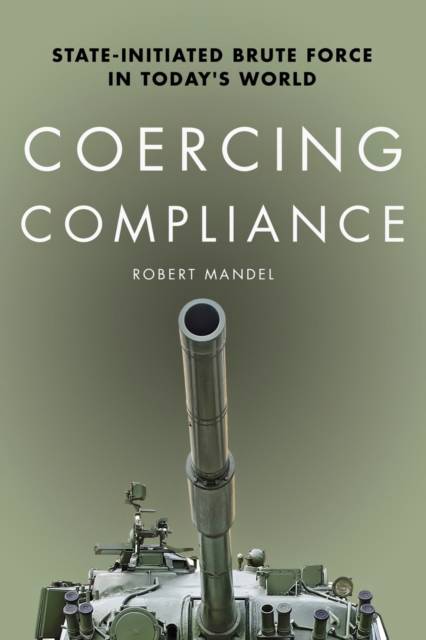
Je cadeautjes zeker op tijd in huis hebben voor de feestdagen? Kom langs in onze winkels en vind het perfecte geschenk!
- Afhalen na 1 uur in een winkel met voorraad
- Gratis thuislevering in België vanaf € 30
- Ruim aanbod met 7 miljoen producten
Je cadeautjes zeker op tijd in huis hebben voor de feestdagen? Kom langs in onze winkels en vind het perfecte geschenk!
- Afhalen na 1 uur in een winkel met voorraad
- Gratis thuislevering in België vanaf € 30
- Ruim aanbod met 7 miljoen producten
Zoeken
€ 241,95
+ 483 punten
Uitvoering
Omschrijving
Few global security issues stimulate more fervent passion than the application of brute force. Despite the fierce debate raging about it in government, society and the Academy, inadequate strategic understanding surrounds the issue, prompting the urgent need for -the first comprehensive systematic global analysis of 21st century state-initiated internal and external applications of brute force. Based on extensive case evidence, Robert Mandel assesses the short-term and long-term, the local and global, the military, political, economic, and social, and the state and human security impacts of brute force. He explicitly isolates the conditions under which brute force works best and worst by highlighting force initiator and force target attributes linked to brute force success and common but low-impact force legitimacy concerns. Mandel comes to two major overarching conclusions. First, that the modern global application of brute force shows a pattern of futility-but one that is more a function of states' misapplication of brute force than of the inherent deficiencies of this instrument itself. Second, that the realm for successful application of state-initiated brute force is shrinking: for while state-initiated brute force can serve as a transitional short-run local military solution, he says, it cannot by itself provide a long-run global strategic solution or serve as a cure for human security problems. Taking the evidence and his conclusions together, Mandel provides policy advice for managing brute force use in the modern world.
Specificaties
Betrokkenen
- Auteur(s):
- Uitgeverij:
Inhoud
- Aantal bladzijden:
- 320
- Taal:
- Engels
Eigenschappen
- Productcode (EAN):
- 9780804793841
- Verschijningsdatum:
- 4/02/2015
- Uitvoering:
- Hardcover
- Formaat:
- Genaaid
- Afmetingen:
- 155 mm x 231 mm
- Gewicht:
- 544 g

Alleen bij Standaard Boekhandel
+ 483 punten op je klantenkaart van Standaard Boekhandel
Beoordelingen
We publiceren alleen reviews die voldoen aan de voorwaarden voor reviews. Bekijk onze voorwaarden voor reviews.









